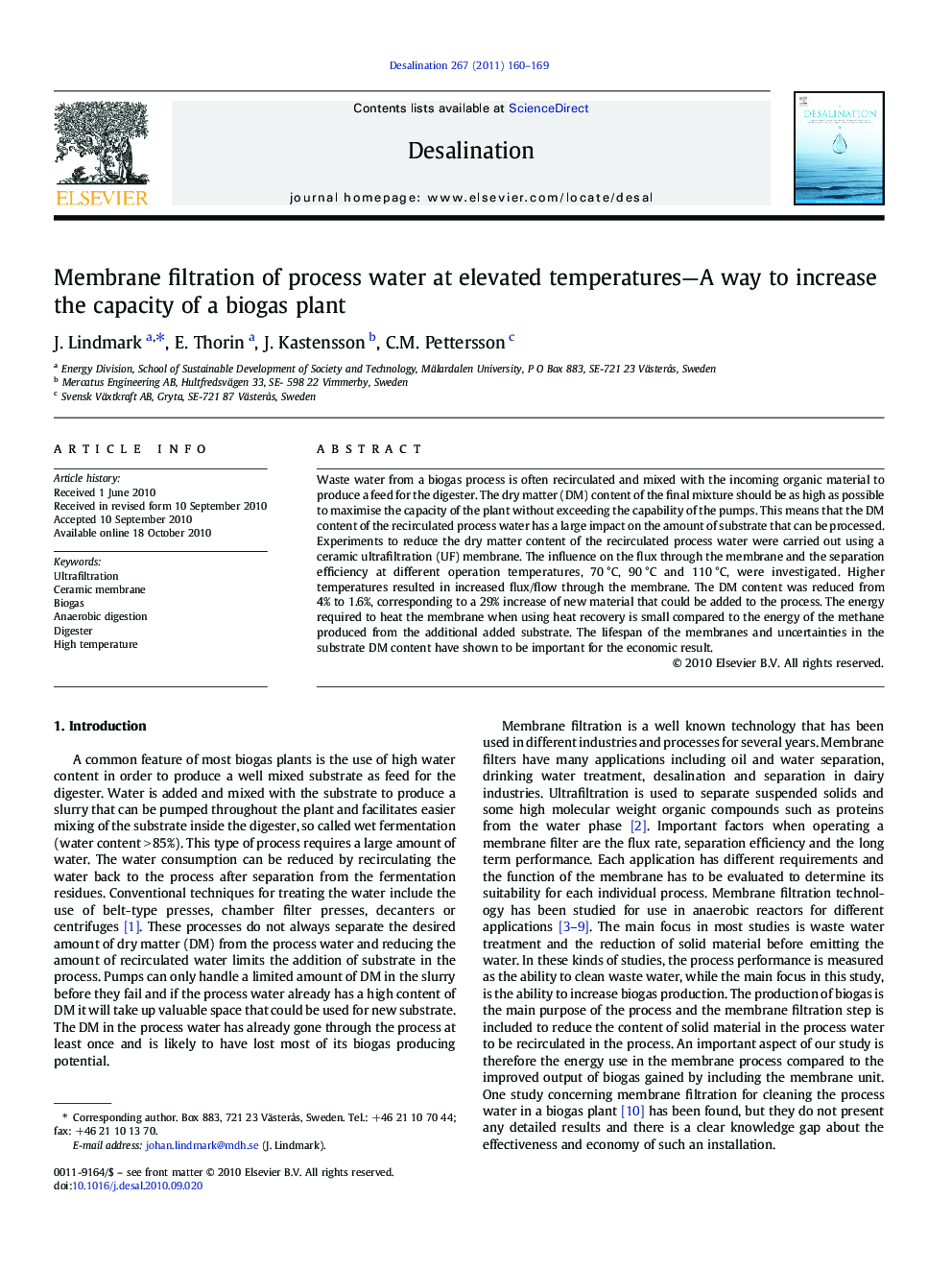| Article ID | Journal | Published Year | Pages | File Type |
|---|---|---|---|---|
| 625306 | Desalination | 2011 | 10 Pages |
Waste water from a biogas process is often recirculated and mixed with the incoming organic material to produce a feed for the digester. The dry matter (DM) content of the final mixture should be as high as possible to maximise the capacity of the plant without exceeding the capability of the pumps. This means that the DM content of the recirculated process water has a large impact on the amount of substrate that can be processed. Experiments to reduce the dry matter content of the recirculated process water were carried out using a ceramic ultrafiltration (UF) membrane. The influence on the flux through the membrane and the separation efficiency at different operation temperatures, 70 °C, 90 °C and 110 °C, were investigated. Higher temperatures resulted in increased flux/flow through the membrane. The DM content was reduced from 4% to 1.6%, corresponding to a 29% increase of new material that could be added to the process. The energy required to heat the membrane when using heat recovery is small compared to the energy of the methane produced from the additional added substrate. The lifespan of the membranes and uncertainties in the substrate DM content have shown to be important for the economic result.
Research highlights►A separation of 63 % dry matter was achieved. ►This would lead to a capacity increase of 29 %. ►Experiments at elevated temperatures lead to a large increase in flux. ►With the use of heat exchangers most of the added energy can be recovered. ►The economic analysis shows that this installation could be a viable solution.
